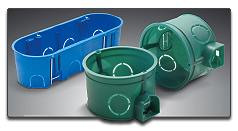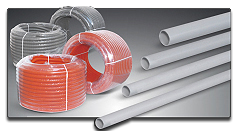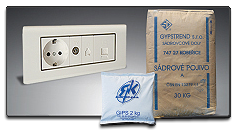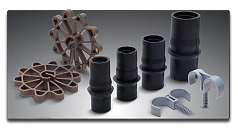Herbal Supplements Fundamentals
Herbs have been used as medicinal treatments for hundreds of years! Go into the Bible and you may see frankincense and myrrh mentioned, not only as gifts to the Christ child (Matthew 2:eleven) however in numerous different places along with aloes, bitter herbs, coriander, hyssop, cumin, garlic, mint, wormwood, fennel and rosemary.
The World Health Organization estimates that 80% of individuals in the world at this time rely upon plant remedies to deal with frequent ailments. So what exactly are herbs? An herb is defined as "a plant that is valued for taste, scent, or other qualities. Herbs are used in cooking, as medicines, and for spiritual purposes."
Many healing traditions, such as Ayurveda (traditional Indian), Asian, Native American, Traditional Chinese Medicine and naturopathic traditions rely on medicinal herbs.
You probably use herbs to flavor your meals every day. That, by the way, is a good way to reap the benefits of many herbs and spices - simply embody them in your food! I'd like to offer you an outline of herbal supplements here. To start with, in a very common way, herbal supplements that are used for medicinal purposes fall into two broad classes: tonic and stimulating.
Tonic herbs assist cells, tissues and organs to maintain balance. Some tonics invigorate physical processes and others nourish organs and tissues so that they function optimally. Examples of tonic herbs are ginseng, astragalus, turmeric ashwagandha, green tea, rhodiola, ginger. Normally tonic herbs are taken frequently for at the very least 3 months to strengthen and improve overall health or to address particular issues. They're light in action.
Stimulating herbs have stronger actions and are utilized in treating particular conditions. These are typically taken in smaller doses, for shorter periods of time. Examples of stimulating herbs are maca, guarana, gotu kola, damiana.
Herbal remedies are used in a number of different forms, together with these: Essential oils, which are highly concentrated extracts. They'll irritate mucous membranes and stomach lining if taken internally, so they're usually used only externally.
Extracts are considered to be the best type because their active ingredients are more concentrated and they can be standardized to a assured potency. This type has a protracted shelf life and retains almost all the plant's benefits.
Tinctures are produced when the herb is soaked in a solvent like alcohol or glycerol and pressed to launch the tincture. These protect the active ingredients for up to one year. Powders are dried herbs which have been ground to a fine consistency. These might be added into your meals, into a liquid or taken in capsule form.
Teas and infusions can virtually be made from any plant. You could find many herbal teas in your local health food and grocery store. These are excellent for relieving delicate to moderate complaints reminiscent of sore throat, stuffy nose and upset stomach. The herbs are steeped in sizzling water so their active ingredients are dissolved into the water and then strained earlier than drinking.
Decoctions are teas which have been made from thicker plant parts like the roots, bark, seeds or berries. Their medicinal ingredients are more difficult to dissolve in water in order that they must be more vigorously boiled and mashed.
Should you have any kind of queries relating to where as well as the best way to make use of natural alternative to Ritalin LA, you are able to call us at the web-site.
The World Health Organization estimates that 80% of individuals in the world at this time rely upon plant remedies to deal with frequent ailments. So what exactly are herbs? An herb is defined as "a plant that is valued for taste, scent, or other qualities. Herbs are used in cooking, as medicines, and for spiritual purposes."
Many healing traditions, such as Ayurveda (traditional Indian), Asian, Native American, Traditional Chinese Medicine and naturopathic traditions rely on medicinal herbs.
You probably use herbs to flavor your meals every day. That, by the way, is a good way to reap the benefits of many herbs and spices - simply embody them in your food! I'd like to offer you an outline of herbal supplements here. To start with, in a very common way, herbal supplements that are used for medicinal purposes fall into two broad classes: tonic and stimulating.
Tonic herbs assist cells, tissues and organs to maintain balance. Some tonics invigorate physical processes and others nourish organs and tissues so that they function optimally. Examples of tonic herbs are ginseng, astragalus, turmeric ashwagandha, green tea, rhodiola, ginger. Normally tonic herbs are taken frequently for at the very least 3 months to strengthen and improve overall health or to address particular issues. They're light in action.
Stimulating herbs have stronger actions and are utilized in treating particular conditions. These are typically taken in smaller doses, for shorter periods of time. Examples of stimulating herbs are maca, guarana, gotu kola, damiana.
Herbal remedies are used in a number of different forms, together with these: Essential oils, which are highly concentrated extracts. They'll irritate mucous membranes and stomach lining if taken internally, so they're usually used only externally.
Extracts are considered to be the best type because their active ingredients are more concentrated and they can be standardized to a assured potency. This type has a protracted shelf life and retains almost all the plant's benefits.
Tinctures are produced when the herb is soaked in a solvent like alcohol or glycerol and pressed to launch the tincture. These protect the active ingredients for up to one year. Powders are dried herbs which have been ground to a fine consistency. These might be added into your meals, into a liquid or taken in capsule form.
Teas and infusions can virtually be made from any plant. You could find many herbal teas in your local health food and grocery store. These are excellent for relieving delicate to moderate complaints reminiscent of sore throat, stuffy nose and upset stomach. The herbs are steeped in sizzling water so their active ingredients are dissolved into the water and then strained earlier than drinking.
Decoctions are teas which have been made from thicker plant parts like the roots, bark, seeds or berries. Their medicinal ingredients are more difficult to dissolve in water in order that they must be more vigorously boiled and mashed.
Should you have any kind of queries relating to where as well as the best way to make use of natural alternative to Ritalin LA, you are able to call us at the web-site.










